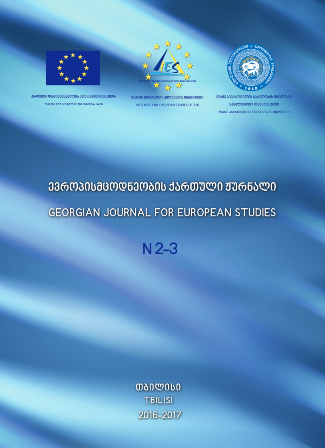THE LEGAL NATURE OF JUS COGENS IN CONTEMPORARY INTERNATIONAL LAW
Abstract
Almost forty years I have been watching developments taking place in international law doctrinal approaches and activities of international and domestic judicial bodies referring to interna onal jus cogens, the concept of which had emerged during the work of Interna onal Law Commission (ILC) (1963-1966) on the ar cles of the law of trea es, later embodied in the Vienna Conven on on the Law of Trea es.
It can be easily noticed that unlike the previous period (1963-1980), contemporary judicial and dip- lomatic practices contain many references to jus cogens. Indeed, while working on this topic the ILC had to base its judgments on purely doctrinal contributions contained in publications or submitted papers by international law experts and comments made by the States, because there had not been a single judicial case on this subject matter.
Despite of this fact, the ILC had managed to offer a well-elaborated draft on the issue of peremptory norms (jus cogens) resulted in Articles 53 and 64 of the Vienna Convention on the Law of Treaties. At the first glace it seems, that we had been witnessing progressive events aimed at further developing of the concept based on practical cases and pragmatic doctrinal suggestions interpreting these cases.
Unfortunately, I cannot share such an optimistic view, because contemporary approaches ignore the real legal notion, that had been formed during the centuries beginning from the ancient time. The main mistake, in my understanding, consists in misunderstanding of the core of the legal notion of jus cogens. Jus cogens has nothing in common with the legal notion of violation (breach) of international law, that is, it deals only with the international law-making process, since every rule of international law cannot be violated by States, even if it has a character of jus dispositivum allowing States to change a legally binding rule. Only international jus cogens norm cannot be changed by the States inter se, if it is recognized and accepted by the international community as a whole as a norm, any derogation from which (to make a different legal rule) by states is forbidden.1
I would not touch upon these, in my understanding, wrong approaches, which ignore this specific character of jus cogens, having nothing in common with the deeds of the States and is concerned with the content of a new rule which is supposed to be established by the individual States in their mutual relations. That is why I decided to remind the international community and authors of contemporary doctrinal and judicial approaches the events of 1960s while the International Law Commission was drafting the Articles
53 and 64. (The more detailed and comprehensive analysis of contemporary approaches will be offered in a special publication).


